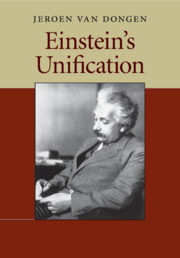Book contents
- Frontmatter
- Contents
- Acknowledgments
- Introduction
- 1 Formulating the gravitational field equations
- 2 On the method of theoretical physics
- 3 Unification and field theory
- 4 Experiment and experience
- 5 The method as directive: semivectors
- 6 Unification in five dimensions
- 7 The method and the quantum
- Conclusion
- References
- Index
7 - The method and the quantum
Published online by Cambridge University Press: 05 May 2013
- Frontmatter
- Contents
- Acknowledgments
- Introduction
- 1 Formulating the gravitational field equations
- 2 On the method of theoretical physics
- 3 Unification and field theory
- 4 Experiment and experience
- 5 The method as directive: semivectors
- 6 Unification in five dimensions
- 7 The method and the quantum
- Conclusion
- References
- Index
Summary
To complete the picture of Einstein's later thought, we end by turning briefly to the critique of quantum theory that he formulated in the same years as he was elaborating unified field theories. We intend to address this critique in light of the historical and methodological perspective that we have taken with regard to the unified field theory work. In this way, we hope to come to a more complete understanding of Einstein's position.
In short, one can say that Einstein's attitude to quantum theory was conditioned by a conviction that the theory was at best a mere phenomenological description of reality. We argue that this attitude was in part due to the methods employed in formulating quantum theory, as these deviated from his gradually developing unified field theory methodology. In addition, it found its expression in the epistemological objections that Einstein formulated, such as the argument contained in the EPR article.
The chapter is organized as follows. We first give a characterization of quantum research in terms of its methods and practices before quantum theory had reached its more complete formulations. The continuously evolving description of quantum phenomena prior to 1925 is generally referred to as the “old quantum theory,” and we will be touching on Einstein's role in its development.
- Type
- Chapter
- Information
- Einstein's Unification , pp. 157 - 183Publisher: Cambridge University PressPrint publication year: 2010

